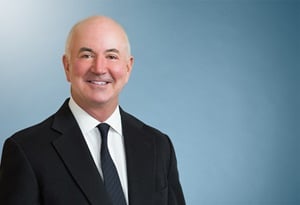CARES Act: Main Street Lending Program Summary for Small and Mid-Sized Businesses
On April 9, 2020, the Federal Reserve released term sheets for a Main Street Lending Program, a new program intended to provide liquidity to small and medium-sized businesses to help withstand the coronavirus crisis. The Main Street Lending Program enables up to $600 billion in new financing of eligible term loans from eligible lenders to eligible businesses and consists of the Main Street New Loan Facility (the MSNLF) and the Main Street Expanded Loan Facility (MSELF). The Department of the Treasury, using funds appropriated under section 4027 of the Coronavirus Aid, Relief, and Economic Security Act (CARES Act), will provide $75 billion in equity to a single common special purpose vehicle (SPV) in connection with the MSNLF and the MSELF. The Federal Reserve Banks will lend the remainder of funds to the SPV for the MSNLF and the MSELF.
Although it targets similar businesses, the Main Street Lending Program is distinct from the mid-sized business loan program contemplated to be created under Section 4003(c)(3)(D) of the CARES Act, which remains unimplemented. Material features of the MSNLF and the MSELF and certain interpretive questions raised by the term sheets for the Main Street Lending Program are summarized below.
Who Is an Eligible Lender?
U.S. insured depository institutions, U.S. bank holding companies, and U.S. savings and loan holding companies are eligible lenders under this program. Nonbank lenders are not eligible lenders under this program.
Who Is an Eligible Borrower?
Businesses are eligible borrowers if they satisfy each of the following:
- Have up to 10,000 employees or less than $2.5 billion in 2019 annual revenues
- Were created or organized in the United States or under the laws of the United States with significant operations in and a majority of its employees based in the United States
- Are not insolvent
Borrowers may only participate in one of the MSNLF, the MSELF or the separate Primary Market Corporate Credit Facility for U.S. issuers of certain corporate debt. Borrowers that have participated in the Paycheck Protection Program established under the CARES Act may also be eligible to participate in the MSNLF or the MSELF. Whether an entity organized and operating in the United States, but that has a foreign parent company or other foreign ownership, could be an eligible borrower remains one of several unanswered interpretive issues raised by the MSNLF and MSELF term sheets and is expected to be addressed prior to commencement of the program.
What is an Eligible Loan?
An eligible loan is made by an eligible lender(s) to an eligible borrower pursuant to the following terms:
- Origination
- MSNLF: On or after April 8, 2020
- MSELF: Upsize provided on or after April 8, 2020 to a term loan originated before April 8, 2020
- Security
- MSNLF: Unsecured
- MSELF: Unsecured unless original loan is secured, in which case security is pari passu with original loan
- Four-year maturity
- Amortization of principal and interest deferred for one year (the amortization schedule for an eligible loan otherwise is not specified in the term sheets released by the Federal Reserve)
- Adjustable rate of Secured Overnight Financing Rate plus 250-400 basis points
- Minimum loan size of $1 million
- Maximum loan size
- MSNLF: The lesser of (i) $25 million or (ii) an amount that, when added to the borrower’s existing outstanding and committed but undrawn debt, does not exceed four times the borrower’s 2019 earnings before interest, taxes, depreciation and amortization (EBITDA)
- MSELF: The least of (i) $150 million, (ii) 30% of the borrower’s existing outstanding and committed but undrawn bank debt, or (iii) an amount that, when added to the borrower’s existing outstanding and committed but undrawn debt, does not exceed six times the borrower’s 2019 EBITDA
- EBITDA: The term sheets provided by the Federal Reserve do not address the principles on which EBITDA will be calculated, including whether add-backs under a borrower’s existing credit facility will be allowed for an MSELF. The issue of whether additional, customary add-backs beyond the simple definition of EBITDA in the term sheets is expected to be addressed prior to commencement of the program.
- Prepayment permitted without penalty
Will the Federal Reserve Participate in the Loan?
The SPV will purchase at par value a 95% participation and the lender(s) will retain 5% of an eligible loan or upsized tranche of an eligible loan.
What Conditions and Restrictions Would Be Imposed by a Loan?
The following attestations will be required with respect to each loan:
- The lender must attest that:
- The proceeds of the loan will not be used to repay or refinance pre-existing loans or lines of credit made by the lender to the borrower
- It will not cancel or reduce any existing lines of credit outstanding to the borrower
- It is eligible to participate in the facility, including in light of the conflicts of interest provision in section 4019(b) of the CARES Act relating to ownership interests by certain government officials and their family members
- The borrower must:
- Commit to refrain from using the proceeds of the loan to repay other loan balances
- Commit to refrain from repaying other debt of equal or lower priority, with the exception of mandatory principal payments (interest is not mentioned), unless the borrower has first repaid the loan in full
- Attest that it will not seek to cancel or reduce any of its outstanding lines of credit with the lender or any other lender
- Attest that it requires financing due to the exigent circumstances presented by COVID-19, and that, using the proceeds of the loan, it will make reasonable efforts to maintain its payroll and retain its employees during the term of the loan
- Attest that it meets the EBITDA leverage condition summarized above in “What is an Eligible Loan”
- Attest that it will follow compensation, stock repurchase, and dividend and other capital distribution restrictions that apply to direct loan programs under section 4003(c)(3)(A)(ii) of the CARES Act (see below)
- Certify that it is eligible to participate in the facility, including in light of the conflicts of interest provision in section 4019(b) of the CARES Act relating to ownership interests by certain government officials and their family members
The compensation, stock repurchase and capital distribution restrictions that apply to direct loan programs under section 4003(c)(3)(A)(ii) of the CARES Act are:
- No Stock Repurchases – Until 12 months after a direct loan is no longer outstanding, no purchase of equity securities listed on a national securities exchange of (a) the business receiving the loan or (b) any parent company of the business while the direct loan is outstanding is permitted, except to the extent required under a contractual obligation in effect as of the date of enactment of the CARES Act (March 27, 2020)
- No Dividends – Until 12 months after a direct loan is no longer outstanding, no payment of dividends or other capital distributions with respect to the common stock of the business receiving the loan is permitted
- Compensation Restrictions – While the loan is outstanding and for one year thereafter:
- No officer or employee of the business whose calendar year 2019 total compensation exceeded $425,000 (unless set by CBA entered into before March 1, 2020) will:
- Receive from the business total compensation that exceeds during any consecutive 12-month period total compensation received by the person from the business in calendar year 2019
- Receive severance pay or other termination benefits exceeding two times the maximum total compensation received by the person from the business in calendar year 2019
- No officer or employee of the business whose total compensation exceeded $3 million in calendar year 2019 may receive during any consecutive 12-month period total compensation in excess of (1) $3 million plus (2) 50% of the compensation over $3 million of total compensation received from the business in calendar year 2019
- No officer or employee of the business whose calendar year 2019 total compensation exceeded $425,000 (unless set by CBA entered into before March 1, 2020) will:
Are There any Fees?
- Facility Fee: A lender will pay, or may require the borrower to pay to the SPV, a facility fee of 100 basis points of the principal amount of the loan participation purchased by the SPV. This fee only applies to the MSNLF and not to the MSELF. The lender may require the borrower to pay this fee.
- Loan Origination Fee: A borrower will pay a lender an origination fee of 100 basis points of the principal amount of the new or upsized loan
- Loan Servicing Fee: The SPV will pay a lender 25 basis points of the principal amount of the new or upsized loan
When Will the Main Street Lending Program Commence?
The program (as outlined in the term sheets provided by the Federal Reserve effective April 9, 2020) is subject to further rulemaking and guidance from the Federal Reserve and Treasury. The Federal Reserve is soliciting comments through April 16, 2020 prior to opening the application process for the program at a subsequent date.
Borrowers that may be considering an MSELF should consider contacting their current lender in advance of the actual commencement date of the program.
What Is the Termination Date?
The SPV will cease purchasing participations in loans on September 30, 2020, unless the facility is extended. The Department of the Treasury will continue to fund the SPV after such date until the SPV’s underlying assets mature or are sold.
As the number of cases around the world grows, Faegre Drinker’s Coronavirus Resource Center is available to help you understand and assess the legal, regulatory and commercial implications of COVID-19.
The material contained in this communication is informational, general in nature and does not constitute legal advice. The material contained in this communication should not be relied upon or used without consulting a lawyer to consider your specific circumstances. This communication was published on the date specified and may not include any changes in the topics, laws, rules or regulations covered. Receipt of this communication does not establish an attorney-client relationship. In some jurisdictions, this communication may be considered attorney advertising.





